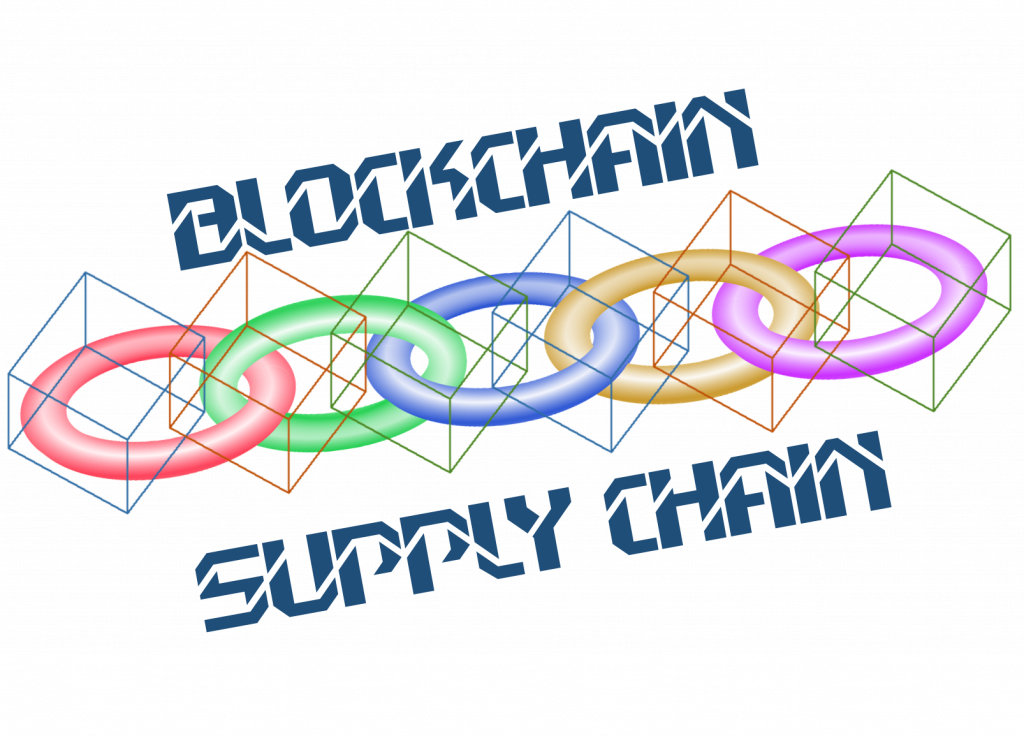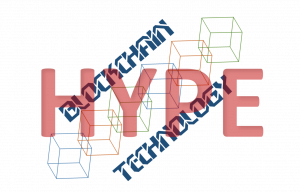The global supply chain appears to be a perfect arena for blockchain technology. John Monarch (@realjohnmonarch) reports, “Blockchain innovation in the supply chain shows great promise for enabling proactive management of shipping. Faster, cheaper transaction settlement has a proven history of reducing processing time up to 80 percent; when paired with blockchain, payment processing will speed transactions and complete more payments. Payment processing is only the tip of the iceberg, and major companies around the globe are turning to blockchain to solve their supply chain visibility and traceability challenges.”[1] In spite of the potential benefits blockchain can provide supply chain operations, Gartner predicts, “80% of supply chain blockchain initiatives will remain at proof-of-concept or pilot stages through 2020.”[2]
According to Gartner, blockchain’s slow implementation is the result of companies embracing the technology’s concept without a clear use case for it. Andrew Stevens, a senior analyst with Gartner’s Supply Chain practice, stated, “Many organizations believed that blockchain could help navigate [global supply chain] complexity and pushed to create robust use cases for the supply chain. However, most of these use cases were inspired by pilots from the banking and insurance sector and didn’t work well in a supply chain environment.” Nevertheless, most analysts believe blockchain still holds great promise in the supply chain arena. “Gartner says adopters need to take a different approach for developing supply chain use cases. Instead of focusing on a single problem, Gartner says supply chain leaders are treating blockchain as part of a longer-term technology roadmap and risk management planning. Many are adopting a broader end-to-end view and mapping all requirements from manufacturing to retail.” In other words, companies viewing blockchain as a collaboration tool are likely to find success using the technology.
Supply chain blockchain remains nascent
“For supply chain managers,” writes Lauren Horwitz (@lhorwitz), “tracking and tracing products is a nagging preoccupation. Manufacturers may ship their products across the globe, but they lack key data about shipment location and status as packages move from sea port to port. This lack of transparency is a hulking challenge that affects efficiency and good decision making. … This lack of visibility is a costly handicap.”[3] Given the importance of supply visibility, little wonder supply chain professionals look to blockchain technology, coupled with Internet of Things (IoT) devices, as a potential silver bullet. Horwitz explains, however, blockchain/IoT solutions only work in a digitized supply chain. She writes, “Connected devices can’t help an industry whose data is largely paper based. For tracking and tracing to be fast and accurate, it needs to be digitized. That’s why supply chain observers say that IoT needs blockchain to usher the industry into the modern era. A blockchain is a distributed ledger that can track a variety of transactions, encrypt the associated data, and also make that data accessible from anywhere. As a result, a blockchain could not only digitize shipping supply chain data, but also make transactions more secure, standardized and universal — even those without credit cards could participate in blockchain-based transactions.” Horwitz concludes, “Experts agree that blockchain is poised to fundamentally change the supply chain.” Being “poised” is another way saying blockchain remains on the starting blocks.
Potential blockchain benefits
Proponents of blockchain technology, like Erol User (@erol_user), Chairman and co-founder of BlockchainArmy, believe blockchain can be a game changer in terms of supply chain efficiency.[4] He suggests the following blockchain characteristics will help companies gain an advantage while making the supply chain more effective and efficient:
High Transparency: “As blockchain works on the principle of the open ledger, it ensures that all parties involved in a specific blockchain know the details of each and every transaction. This highest level of transparency is a boon for the supply chain as all stakeholders will be in the known and have accurate information about the transactions, processes, payments, and other crucial processes involved in the process of the supply chain all the time.” User correctly points out every participant “in a specific blockchain” gains access to information. What he doesn’t state is that every blockchain has different protocols, which means some companies might have to join several different blockchain groups. “Everywhere you turn these days,” writes, Robert J. Bowman, Managing Editor of SupplyChainBrain, “there’s a blockchain pilot underway for the supply chain. But they’re all missing one crucial element: a single, coherent set of standards.”[6]
Rock-solid Security: “Another important benefit of integrating blockchain on the supply chain discipline,” User notes, “is the high level of security offered by the distributed ledger. The information in the blockchain is stored in blocks that are attached to one another in an immutable manner. It is impossible to change blocks or, in other words, change the information, which clearly means that there is no risk of tampering with the processes. As there is no involvement of third parties like banks, financial institutions, or any other regulatory agency, you remain assured about the safety credential of the blockchain.”
Higher Efficiency: “Compared to conventional systems,” User asserts, “the efficiency of the blockchain-powered system is many times higher. It can provide significantly better results and add to the benefit is the fact that blockchain technology is highly scalable. No matter what is the size of your organization, blockchain technology can be utilized to help make your supply chain more effective and efficient. Once you achieve high efficiency in the supply chain, it is going to rub off on other related aspects such as distribution, warehouse, capacity building, and inventory management to further multiply the gains.”
Despite User’s assertion that blockchain is highly scalable, some critics have their doubts. Mark van Rijmenam (@VanRijmenam), founder of Datafloq, explains, “The first challenge is the technical scalability of blockchain, which is, at least for public blockchains, a hurdle that could limit their adoption.”[5] To be fair, van Rijmenam notes, “Scalability is less of a problem for private blockchains.” Most supply chain systems are and will be private blockchains.
Concluding thoughts
Bowman observes, “Blockchain technology as we know it is already 11 years old, conceived as a transactional ledger in support of bitcoin. But businesses quickly realized that it was good for something more than recording the transfer of cryptocurrencies. With its promise of storing data among multiple computers, thereby ensuring against tampering or unauthorized changes to the record, blockchain seemed an ideal tool for validating the provenance and progress of goods throughout the supply chain.” He goes on to note a number of blockchain projects currently underway in the supply arena. He then writes, “Missing from all those projects … is an overarching set of standards for communication that can propel blockchain into everyday use. In fact, the lack of standards is one reason why Gartner has predicted that 90% of current blockchain-based supply-chain initiatives will experience ‘blockchain fatigue’ by 2023.” Bowman gives a nod to “GS1, the not-for-profit entity that gave the world standards for formatting and placement of the ubiquitous barcode.” He reports, “Through the GS1 US Blockchain Discussion Group, the organization is pursuing a similar path on behalf of blockchain.” This is good news. However, Bowman concludes, “Standards can’t come to the table too quickly. Already some companies are beginning to question the long-term value of blockchain.”
Footnotes
[1] John Monarch, “What’s the Real Traction on Blockchain in the Supply Chain?” RFID Journal, 10 November 2019.
[2] Staff, “Gartner: 80% supply chain blockchains will still be pilots in 2022,” Ledger Insights, 24 January 2020.
[3] Lauren Horwitz, “Supply Chain IoT Needs Blockchain to Fully Mature,” IoT World Today, 11 January 2020.
[4] Sandra Kinsey, “Erol User: Use of Blockchain in Supply Chain Can Up the Efficiency Dramatically,” Finance Long, 12 January 2020.
[5] Mark van Rijmenam, “7 Blockchain Challenges to be Solved before Large-Scale Deployment,” Medium, 25 September 2019.
[6] Robert J. Bowman, “The Element That Can Make or Break Blockchain for the Supply Chain,” Supply Chain Brain, 11 November 2019.





